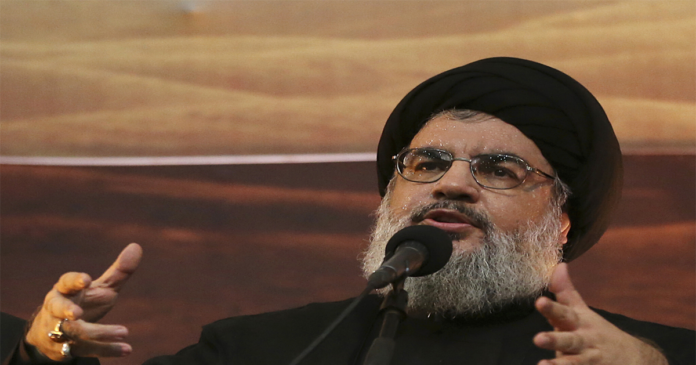There have been increasing tit-for-tat exchanges along Lebanon’s southern border, primarily between Israel and Hezbollah, an ally of the Palestinian group, following the historic October 7 attack on Israel by Hamas terrorists from the Gaza Strip. This has stoked worries of a wider conflict.
Hezbollah break silence on Israel-Hamas war: The group claims that on Thursday, the cross-border strikes intensified when Israel launched a “broad assault” in retaliation for Hezbollah’s simultaneous attacks on 19 Israeli locations.
The Lebanese branch of Hamas’s armed wing claimed responsibility for the rocket fire that also struck the Israeli settlement of Kiryat Shmona close to the border.
Hossein Amir-Abdollahian, the foreign minister of Iran, has issued dire warnings, saying that “anything is possible” and that “the region is like a powder keg” if Israel does not cease attacking Gaza.
In addition to warning Hezbollah and other parties to keep out of the crisis, US President Joe Biden dispatched two aircraft carrier groups to the eastern Mediterranean.
Spokesman for the US National Security Council John Kirby told reporters, “We’ve got significant national security interests at play here.”
“I don’t think there has been any clear evidence to date that Hezbollah is prepared to launch an offensive. Thus, we’ll wait to hear from him.”
On this Friday at 3:00 pm (1300 GMT), they will show Nasrallah’s much-awaited address as part of an event in the southern suburbs of Beirut, a stronghold of Hezbollah, to honor fighters slain in Israeli bombardments.
According to an AFP count, over 70 individuals have died on the Lebanese side, at least 50 of them were Hezbollah fighters, along with other combatants, civilians, and one Reuters journalist.
Nine individuals have perished on the Israeli side, according to the army: eight troops and one civilian.
“Red line” elements
Some observers believe that Hezbollah does not have a strong interest in getting deeply involved in a fight that could result in the destruction of Lebanon, as warned by Israeli authorities.
Others claim that Iran, which is leading the “axis of resistance” in the region against Israel, has the final say. This “axis of resistance” comprises armed groups from Syria, Iraq, and Yemen in addition to Hezbollah; some of these groups have targeted Israel and US interests in the region in recent weeks.
However, Amal Saad, a Cardiff University expert on Hezbollah, asserted: “Hezbollah is an ally of Iran, not a proxy for it. It doesn’t require permission from anyone to intervene.”
“Hezbollah has much more experience obviously fighting Israel than Iran does — Iran has not had a direct confrontation with Israel,” Saad stated.
In a letter sent to Palestinian organisations in Gaza on Wednesday, Hezbollah’s fighters stated that they had their “finger with you on the trigger… to support Al-Aqsa mosque and our oppressed brothers in Palestine”.
The Shiite Muslim group has primarily limited its use of what it claims to be anti-tank missiles, guided missiles, and even surface-to-air missiles to Israeli observation points, military positions, and vehicles close to the border, as well as drones.
Drones have targeted combatants close to the border, and Israel has responded by striking locations around the border.
The tensions along the border have invoked memories of Hezbollah’s catastrophic battle with Israel in 2006. In that conflict, over 1,200 people lost their lives, with the majority being civilians in Lebanon, and 160 in Israel, primarily military personnel.
“Death blow” alert
Iran provides financial support to Hezbollah in addition to armaments and equipment, and since 2006, the group has accumulated a formidable arsenal.
Nasrallah has bragged for years about how his group’s missiles might penetrate far into Israeli territory.
According to Michael Young of the Carnegie Middle East Centre, “each side is carefully measuring its actions and reactions to avoid a situation that may spin out of control and spread to the region.”
However, he issued a warning last week that “Lebanon’s devastation would turn most communities, perhaps even large segments of the Shiite community,” against Hezbollah if it were to completely enter the conflict.
Both pro- and anti-war activists in Lebanon are waiting impatiently for Nasrallah’s speech.
“We are eagerly awaiting… We hope he declares war on the enemy of Israel and the Western nations who back it “Ahed Madi, 43, of the border village of Shebaa stated.
A renewed conflict between Israel and Hezbollah “would be a death blow for Lebanon,” according to 41-year-old Rabih Awad of the southern town of Rashaya al-Fokhar. Lebanon is now experiencing a severe economic crisis.
“I am against the war of extermination on the Palestinians in Gaza,” he stated to AFP.
“But the decision to go to war must be taken by the Lebanese state, not a party or a militia.”

